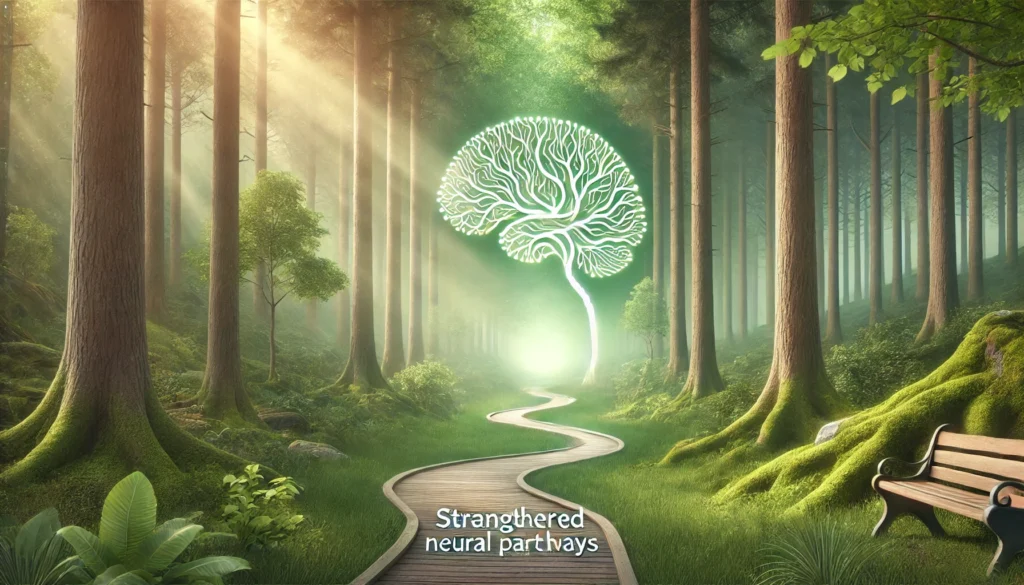The Power of Natural Antidepressants in Cognitive Health
The intersection between mood regulation and cognitive function is an area of growing interest in neuroscience and mental health research. Memory and recall are not merely functions of raw intelligence or practice; they are deeply intertwined with emotional well-being. A person experiencing chronic stress, anxiety, or depression will often notice a decline in their ability to focus, retain information, and recall details efficiently. Fortunately, a variety of natural antidepressants have demonstrated potential in not only mitigating depressive symptoms but also in enhancing neural plasticity, memory formation, and recall. These compounds, derived from herbal sources, vitamins, and amino acids, present viable alternatives to traditional pharmaceutical treatments and can serve as a means of strengthening neural pathways for improved mental performance.
You may also like: How to Retrain Your Brain: Harnessing Neuroplasticity to Overcome Anxiety and Strengthen Neural Pathways
The human brain relies on a complex network of neurons that communicate through neurotransmitters such as serotonin, dopamine, and norepinephrine. When this balance is disrupted, depression and cognitive decline can follow. While traditional antidepressant drugs over the counter are available, many individuals seek natural alternatives to antidepressants due to concerns about side effects, dependency, or long-term effects. This growing interest in natural selective serotonin reuptake inhibitors (SSRIs) has led to increased exploration of plant-based compounds and essential nutrients that mimic or enhance the effects of conventional antidepressant medications.
Understanding Neural Pathway Strengthening and Its Connection to Mood
The human brain is incredibly adaptable, a property known as neuroplasticity. This ability allows neurons to forge new connections, strengthening the brain’s networks and optimizing cognitive function. Depression and chronic stress, however, can impair neuroplasticity, leading to difficulty in forming new memories and recalling past experiences. This highlights the critical role of alternative cures for depression that go beyond mood regulation and contribute to overall cognitive health.
Over the counter depression medicine often focuses on increasing neurotransmitter activity to counteract depressive symptoms. However, natural antidepressants take a more holistic approach by nourishing the brain, reducing inflammation, and fostering an environment conducive to neural growth. By integrating best natural supplements for depression into a daily routine, individuals may experience an uplift in mood and a boost in mental clarity.

The Role of Natural SSRIs in Cognitive Enhancement
Selective serotonin reuptake inhibitors (SSRIs) are among the most commonly prescribed medications for depression. They work by preventing the reabsorption of serotonin, allowing it to remain active in the brain for longer periods. While pharmaceutical SSRIs are effective, many people seek natural SSRI antidepressants that provide similar benefits without the potential side effects associated with prescription drugs.
Herbal supplements for depression that function as natural SSRIs include St. John’s Wort, Rhodiola Rosea, and Saffron. St. John’s Wort, for instance, has been shown to enhance serotonin activity, making it one of the best natural antidepressants available. Rhodiola Rosea, known for its adaptogenic properties, helps the brain resist stress and fatigue, enhancing mental endurance and clarity. Saffron, often recognized for its culinary uses, has demonstrated significant antidepressant effects comparable to some prescription medications, making it a viable alternative to traditional over the counter depression medication.
Exploring Natural Alternatives to Lexapro and Zoloft for Anxiety and Depression
Lexapro and Zoloft are widely prescribed SSRIs that effectively manage depression and anxiety. However, concerns about long-term use have led many to explore natural alternatives to Lexapro for anxiety and natural substitutes for Zoloft. Herbal remedies such as Ashwagandha, Bacopa Monnieri, and Ginseng have gained popularity as natural replacements for these medications due to their neuroprotective and mood-enhancing properties.
Ashwagandha, an adaptogen, helps regulate cortisol levels, reducing stress and promoting a calm, focused state of mind. Bacopa Monnieri, traditionally used in Ayurvedic medicine, has been shown to improve memory retention and cognitive processing, making it a powerful tool for neural pathway strengthening. Ginseng, particularly Panax Ginseng, enhances dopamine activity, which plays a crucial role in motivation and mental energy. These natural ssri alternatives not only help alleviate depressive symptoms but also contribute to improved learning and recall abilities.
The Impact of Nutrition and Vitamins on Depression and Cognitive Function
What vitamin is a natural antidepressant? The answer lies in a combination of essential nutrients that support neurotransmitter function and neural health. B vitamins, particularly B6, B9 (folate), and B12, play a crucial role in serotonin production. A deficiency in these vitamins is often linked to depression and cognitive decline. Omega-3 fatty acids, found in fish oil and flaxseed, support brain cell integrity and neurotransmitter efficiency.
Magnesium is another key nutrient that influences brain function. Often referred to as nature’s relaxant, magnesium helps regulate the nervous system, reducing symptoms of anxiety and depression while promoting cognitive clarity. Additionally, vitamin D plays a significant role in mood regulation, and its deficiency has been correlated with increased depression risk. Ensuring adequate levels of these nutrients can act as a natural substitute for Wellbutrin and other over the counter depression meds.
Herbal Supplements and Adaptogens for Neural Pathway Strengthening
Herbal supplements for depression provide a natural approach to mood enhancement and memory support. Adaptogens like Lion’s Mane Mushroom, Holy Basil, and Gotu Kola have been extensively studied for their neuroprotective properties. Lion’s Mane Mushroom, in particular, has shown promise in stimulating nerve growth factor (NGF), which is essential for the repair and growth of neurons.
Holy Basil, known for its stress-reducing properties, helps balance cortisol levels, thereby preventing stress-induced cognitive impairment. Gotu Kola, often used in traditional medicine, enhances blood circulation to the brain, supporting mental clarity and recall. These natural alternatives to Wellbutrin and other pharmaceutical antidepressants offer holistic benefits that extend beyond mood regulation to cognitive enhancement.

Frequently Asked Questions (FAQ) About Natural Antidepressants and Cognitive Health
1. Can depression be cured naturally, or does it always require medication? Depression is a complex condition that varies from person to person, meaning that some individuals may find relief through natural remedies for depression while others may require medical intervention. Holistic approaches, such as diet modification, mindfulness practices, and exercise, have been shown to significantly improve mood and cognitive function by regulating neurotransmitter levels. Natural supplements for depression, such as Omega-3 fatty acids, Rhodiola Rosea, and St. John’s Wort, can provide biochemical support for brain function without the side effects of pharmaceuticals. However, severe depression may necessitate a combination of therapy, lifestyle changes, and in some cases, medication. Working with a healthcare professional to develop a tailored approach is key to managing depression without medication when possible.
2. How can you get out of depression without relying on pharmaceutical drugs? There are numerous strategies for dealing with depression without medication, many of which focus on lifestyle and behavioral changes. Regular physical activity, particularly aerobic exercises like running or swimming, stimulates endorphin release, which acts as a natural antidepressant. Engaging in creative activities, such as painting, playing music, or writing, can also foster emotional expression and alleviate negative thought patterns. Certain natural supplements for depression, including magnesium and ashwagandha, support brain function and stress response mechanisms. The key to successfully overcoming depression without medication is consistency in these habits and actively seeking social support from friends, family, or support groups.
3. What are some natural remedies for anxiety and depression that work effectively? Natural remedies for anxiety and depression include both dietary and behavioral interventions that support mental resilience. Adaptogenic herbs like holy basil and ginseng help the body regulate stress hormones, while probiotics improve gut health, which has been linked to mood regulation. Practicing mindfulness meditation and deep breathing exercises can aid in calming the nervous system, reducing the physiological response to stress and sadness. Sunlight exposure is another critical factor, as it boosts vitamin D levels, which are essential for serotonin production. Using depression alternative remedies in conjunction with healthy sleep hygiene can further enhance emotional stability and mental clarity.
4. How do you overcome depression and anxiety when conventional treatments are not an option? Overcoming depression and anxiety without traditional pharmaceutical treatment requires a multi-faceted approach that addresses both physiological and psychological aspects. Cognitive behavioral therapy (CBT) techniques can be self-taught and utilized to challenge negative thought patterns and reinforce healthier ways of thinking. Practicing gratitude journaling and engaging in daily affirmations can shift focus toward positive perspectives and increase resilience against stress. Dietary improvements, such as increasing the intake of omega-3 fatty acids and B vitamins, support neurotransmitter production and nervous system stability. Additionally, exploring alternative therapies like acupuncture or sound therapy can provide additional relief for those looking to battle depression without medication.
5. What are some ways to fight depression when feeling overwhelmed? When dealing with depression, it’s important to break down recovery into manageable steps rather than expecting immediate change. Setting small, achievable goals each day can help build momentum and restore a sense of accomplishment. Social interaction, even in small doses, can counteract feelings of isolation and encourage a positive feedback loop in brain chemistry. Natural treatment for depression also involves physical interventions, such as yoga or progressive muscle relaxation, which alleviate physical symptoms of stress. Exposure to nature, whether through hiking or simply walking in a park, has been shown to lower cortisol levels and enhance mood. By combining these methods, individuals can gradually regain control over their emotional well-being and avoid feeling stuck in a cycle of despair.
6. How can you fight depression through diet and nutrition? Diet plays a fundamental role in mental health, with deficiencies in key nutrients often linked to mood disorders. Foods rich in tryptophan, such as turkey, eggs, and dairy, help the body produce serotonin, a neurotransmitter that promotes well-being. Antioxidant-rich fruits and vegetables combat oxidative stress in the brain, which can contribute to cognitive decline and emotional instability. Omega-3 fatty acids found in fish and flaxseeds have been extensively studied for their role in fighting depression and improving brain function. Maintaining stable blood sugar levels by avoiding excessive refined sugars and processed foods can also prevent mood fluctuations and enhance overall emotional resilience.
7. How do you recover from depression when motivation is at an all-time low? Recovering from depression can feel daunting, especially when energy and motivation are lacking, but small, consistent actions can lead to significant improvements over time. Establishing a daily routine, even if it starts with minimal tasks, helps create structure and prevents prolonged inactivity, which can worsen depressive symptoms. Practicing self-compassion is crucial—recognizing that setbacks are part of the journey rather than indicators of failure can reduce feelings of hopelessness. Incorporating natural remedies for depression, such as aromatherapy using lavender or chamomile, can offer gentle mood support. Additionally, engaging in purposeful activities, such as volunteering or learning a new skill, can provide a sense of fulfillment and gradually restore motivation.
8. How do you battle depression in the long term? Long-term depression management requires sustainable lifestyle adjustments and an ongoing commitment to mental well-being. Establishing strong social connections and maintaining open communication with trusted individuals can provide crucial emotional support. Continuous learning and personal development can also keep the mind engaged and reduce the likelihood of ruminating on negative thoughts. Engaging in physical activities like hiking, swimming, or tai chi provides a combination of exercise and mindfulness, both of which are effective ways to fight depression. Seeking out holistic treatment for depression, such as acupuncture, massage therapy, or herbal medicine, can complement other strategies and offer additional relief. Ultimately, long-term success lies in maintaining consistency and adapting strategies to suit individual needs over time.
9. How do you get rid of depression while maintaining a busy lifestyle? Balancing mental health with a demanding schedule requires strategic time management and self-care prioritization. Simple practices, such as five-minute meditation sessions or mindful breathing exercises, can be incorporated into daily routines without disrupting productivity. Scheduling short breaks throughout the day to engage in stress-relieving activities, like listening to music or stretching, helps maintain mental equilibrium. Managing depression without meds also involves establishing a nutritious diet that supports brain function, even amid a hectic schedule. Delegating tasks, setting realistic expectations, and learning to say no when necessary can reduce excessive stress and prevent burnout, making it easier to combat depression in a sustainable way.
10. What are things that help relieve sadness in addition to lifestyle changes? Beyond lifestyle adjustments, exploring new hobbies and interests can provide a fresh sense of purpose and enjoyment, reducing feelings of sadness. Engaging with animals, whether through pet ownership or volunteering at shelters, has been shown to boost oxytocin levels and alleviate loneliness. Music therapy, whether through listening or playing an instrument, can serve as a powerful emotional outlet and mood booster. Using journaling as a means of self-reflection allows for emotional processing and cognitive restructuring. When combined with natural remedies for anxiety and depression, these activities can significantly contribute to emotional healing and resilience over time.

Conclusion: Integrating Natural Antidepressants for Optimal Brain Health
The search for the best natural antidepressants extends beyond symptom relief; it is about fostering an environment that supports mental resilience, neural pathway strengthening, and cognitive longevity. Over the counter drugs for depression may offer short-term relief, but natural alternatives provide a sustainable path to mental well-being.
By incorporating herbal supplements, essential vitamins, and adaptogens into a daily routine, individuals can address both emotional and cognitive health in a balanced manner. Whether seeking a natural substitute for Zoloft or exploring what vitamin is a natural antidepressant, the wealth of options available today offers promising solutions for those looking to enhance memory, recall, and overall mental vitality. In a world where cognitive demands are ever-increasing, prioritizing brain health through natural means is an investment in long-term well-being and mental performance.
Further Reading:
Update and Critique of Natural Remedies as Antidepressant Treatments
6 natural antidepressants: Are they effective?
Important Note: The information contained in this article is for general informational purposes only, and should not be construed as health or medical advice, nor is it intended to diagnose, prevent, treat, or cure any disease or health condition. Before embarking on any diet, fitness regimen, or program of nutritional supplementation, it is advisable to consult your healthcare professional in order to determine its safety and probable efficacy in terms of your individual state of health.
Regarding Nutritional Supplements Or Other Non-Prescription Health Products: If any nutritional supplements or other non-prescription health products are mentioned in the foregoing article, any claims or statements made about them have not been evaluated by the U.S. Food and Drug Administration, and such nutritional supplements or other health products are not intended to diagnose, treat, cure, or prevent any disease.


